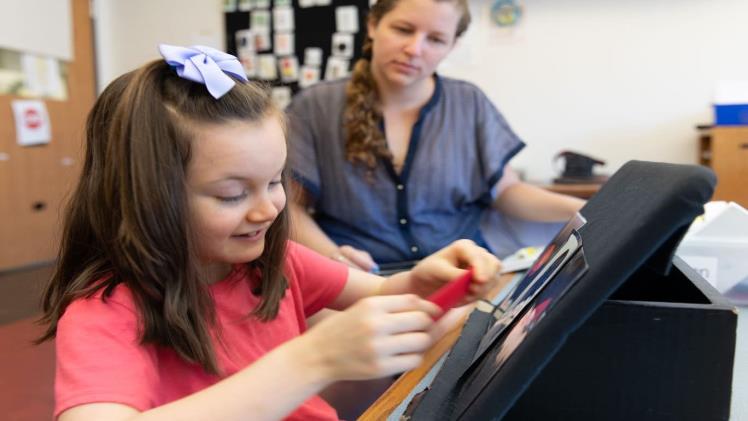Functional vision assessment is a tool that helps students and children to have better eye function. It can help in determining if they have a problem with their eyesight and what type of visual impairment they have.
An optometrist or an ophthalmologist can perform a functional vision assessment. It aids in evaluating the child’s vision and identifying any potential issues. The assessment can also be done by a school nurse or teacher for children who are not having any issues with their eyesight but need assistance understanding how to read, see, or do classwork.
What is a Functional Vision Assessment for children ?
A Functional Vision Assessment (FVA) for children is a vision screening that provides information about their vision and how it affects their daily lives.
A functional vision assessment can aid in the diagnosis of a child’s vision symptoms and the identification of any underlying conditions that require treatment.
An eye exam, visual field test, and developmental evaluation are all part of a functional vision assessment.
How Does a Functional Vision Assessment Work?
Functional vision assessment tests are used by optometrists and ophthalmologists to screen for eye problems. They can also be used in schools to screen for learning disabilities.
A functional vision assessment test is typically a series of questions that focus on what you can see and how well you can see it. The test is typically a series of questions about distance, nearness, colour, shape, and movement.
These tests are used by eye doctors to determine whether or not a person has any vision problems. They may also use them as part of a screening process at school or at work to determine whether or not they have any potential learning disabilities.
What to Expect After Receiving the Results of the Functional Vision Assessment for children?
After receiving the results of a functional vision assessment for their child, parents may feel worried and anxious about what to do next. This can be especially true for children who have been diagnosed with low vision or blindness. Parents may fear that they will not be able to provide their child with the opportunities they deserve and will miss out on things like school or sports activities.
While parents should not worry too much, they should also understand that there is no one-size-fits-all solution when it comes to helping children with vision impairments. Some children may need further testing and treatment while others might just need an eye exam every now and then.
The results of the functional vision assessment will assist you and your doctor in determining the best type of eyecare for your child’s eyes. Spectacles, contact lenses, and prescription eyeglasses are all included in the assessment.
What to Do After Receiving the Results from an FVA?
After you have received the results from an FVA, it is important to follow-up with your doctor. This can be done by going to your doctor for a follow-up visit or by calling them. If you had an FVA and are still having symptoms, it is important to see your doctor for a follow-up visit.
In conclusion, As the eyesight of children and students deteriorates, their ability to learn diminishes. Regular eye exams can help identify children’s at risk for problems that can make it difficult for them to focus on schoolwork. When implement functional vision assessments are able to identify the possible causes of these issues, then take steps to address them before they become more serious.

